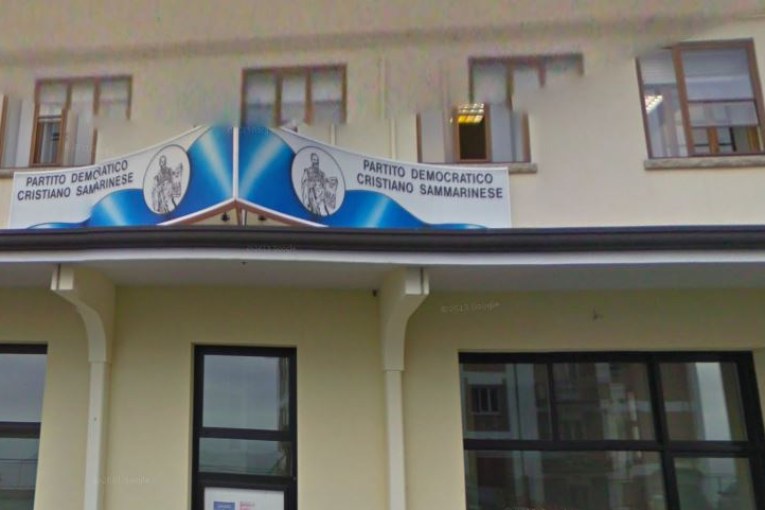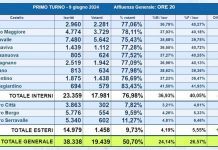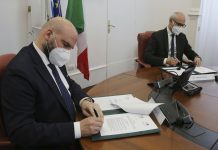Brussels, June 21, 2024 – The European Centre for Information Policy and Security (ECIPS) is issuing a stern warning to the European Union regarding the dangerous and escalating interference of South Korean interests, heavily supported by Russian influences, within the political mechanisms of the EU. ECIPS President, Ricardo Baretzky, urges immediate and decisive action to halt these activities that threaten the integrity and security of European governance.

Recent investigations by ECIPS have uncovered a complex web of political and financial manipulations orchestrated by South Korean entities, with substantial backing from Russian operatives, aimed at influencing key decisions within the European Commission and the Council of Europe. This press release aims to elucidate the critical findings, the potential risks, and the urgent measures required to safeguard the EU’s sovereignty.
Background
The European Centre for Information Policy and Security (ECIPS) is a leading authority on matters of security, policy, and international affairs within Europe. Our mandate includes the protection of European democratic institutions from external manipulation and the safeguarding of information integrity across member states. Over recent months, ECIPS has been closely monitoring suspicious activities linking South Korean political figures and organizations with Russian interests, particularly in their attempts to exert undue influence over European institutions.
Findings
South Korean and Russian Nexus
ECIPS’s intelligence reports reveal that certain South Korean politicians and business figures have established clandestine relationships with Russian counterparts. These relationships are not merely incidental but form a strategic partnership aimed at extending Russia’s geopolitical influence into Europe through South Korean proxies. This partnership is leveraging South Korea’s economic and diplomatic presence to facilitate Russian objectives in undermining European unity and decision-making processes.
Bribery and Corruption in Brussels
Our investigations have identified multiple instances of bribery and corruption involving officials within the European Commission and the Council of Europe. These actions are part of a broader scheme to embed South Korean influence into the fabric of European political life. ECIPS has documented cases where substantial financial incentives were offered to European officials in exchange for favorable decisions or the suppression of dissenting voices.
Treason and Security Risks
The infiltration of South Korean interests with Russian support into European political structures is more than a diplomatic concern; it constitutes a direct threat to the sovereignty and security of the European Union. Such activities could be interpreted as acts of treason, undermining the fundamental principles of European democracy and governance. The potential for compromised officials to sway critical decisions poses an existential risk to the integrity of the EU.
Implications
Political Instability
The actions of South Korean entities, backed by Russian resources, have the potential to create significant political instability within the EU. By infiltrating key institutions, these actors aim to disrupt the cohesion and effectiveness of European policy-making, leading to fragmented and inconsistent governance.
Economic Impact
Bribery and corruption at such high levels can severely undermine investor confidence and economic stability within the EU. The uncertainty generated by these actions can lead to market volatility, adversely affecting European economies and diminishing the region’s global economic standing.
Erosion of Trust
Perhaps most damaging is the erosion of trust in European institutions. When external actors successfully manipulate internal processes, the faith of European citizens in their governing bodies is severely compromised. This distrust can lead to widespread disillusionment and apathy, weakening democratic engagement and participation.
ECIPS’s Stance and Recommendations
Immediate Investigations
ECIPS calls for immediate, thorough investigations into the allegations of bribery and corruption linked to South Korean and Russian actors. European law enforcement and intelligence agencies must collaborate to trace and document these activities, ensuring that all implicated individuals are brought to justice.
Strengthening Legal Frameworks
There is an urgent need to strengthen the legal frameworks governing lobbying and political donations within the EU. Enhanced transparency and accountability measures will help to deter external actors from attempting to corrupt European institutions.
Increased Security Measures
Enhanced security measures must be implemented to protect the integrity of the European Commission and the Council of Europe. This includes rigorous background checks, increased surveillance of suspicious activities, and the establishment of a dedicated task force to monitor and counteract foreign interference.
Public Awareness Campaigns
Raising public awareness about the risks and realities of foreign interference is crucial. ECIPS advocates for a comprehensive public information campaign to educate European citizens about the tactics used by foreign entities to manipulate political processes and the importance of safeguarding democratic institutions.
The European Centre for Information Policy and Security (ECIPS) is fully committed to protecting the sovereignty and integrity of the European Union. The findings of our investigations into the South Korean and Russian nexus are alarming and demand immediate action. We urge the European Commission, the Council of Europe, and all member states to take decisive measures to counteract these threats and to uphold the principles of transparency, accountability, and democracy.
ECIPS will continue to monitor the situation closely and will provide ongoing support to European authorities in their efforts to address this serious issue. The time for action is now; the future of the European Union depends on our collective ability to protect it from external manipulation and influence.


























